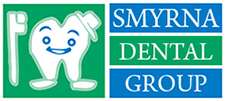6 Worst Habits for Your Dental Health
Good oral health habits are the foundation of good oral health. On the other hand, with a lack of attention, some habits can be harmful to our oral health. Listed below are some bad dental habits that can damage our oral health.
- Nail biting
Some people bite their nails without even knowing it. Over time, this can cause damage to your teeth. The parts of the tooth that are responsible for chewing, called the cusps, can become chipped or cracked. This can lead to an increased risk of tooth decay because the enamel that protects the teeth is not as strong as it should be. The worst part about nail biting is that it's a habit that can be very hard to break. If you chew on your fingernails only when you're bored, consider picking up a hobby such as knitting or crocheting to keep your hands busy. You may also want to consider getting a manicure to help occupy your time. When all else fails, simply try to be aware of when you may be more likely to start biting your nails so you can stop yourself before any damage occurs.
- Smoking and alcohol consumption
In addition to not causing harm to your mouth directly, cigarettes and alcohol can also weaken your immune system and make you more susceptible to gum disease. They are also known to stain your teeth and cause bad breath. It is best to avoid these things altogether for the sake of both your oral and overall health. If you cannot quit drinking or smoking on your own, contact your doctor to discuss other options. Otherwise, try to limit your intake as much as possible.
- Brushing teeth aggressively
Brushing your teeth aggressively is not healthy for your teeth. The bristles of your toothbrush can remove plaque and food particles from your teeth effectively and without causing damage. However, when you brush too hard or too fast, the bristle tips can scrape at the enamel surface of your teeth which can cause wear and tear over time. Toothbrush abrasion can also result in sensitive teeth. To reduce your risks of damaging your oral health by overbrushing, use a soft-bristled toothbrush, hold the toothbrush at a slight angle against your tooth and gently brush your teeth in small circular motions. Avoid pressing down at the gumline, as this can damage your gums as well. Then, floss daily to remove any residual food particles that can remain between teeth after brushing.
- Teeth grinding
Bruxism is a condition where a person grinds his or her teeth while sleeping. It's usually characterized by jaw discomfort and headaches in the morning. If left untreated, bruxism can lead to serious oral health problems, including tooth loss, damaged enamel, or receding gums. To treat this condition, it's important to visit your dentist and ask about the treatment options for teeth grinding. He or she may recommend wearing a mouth guard at night to avoid damaging your teeth or recommending other lifestyle changes.
- Using teeth as tools
Aside from chewing food, there are also instances when we use our teeth for purposes other than eating or speaking. These may include tearing apart things, cracking nuts, or even opening bottles and packages. The truth is, while these activities may seem harmless, they can actually cause a lot of damage to your teeth and mouth over time.
- Not visiting the dentist regularly
Most people think going to the dentist is painful and inconvenient. However, regular visits to your dentist are essential for maintaining good oral hygiene and health. Skipping appointments can increase your chances of developing serious oral health problems. These issues not only lead to pain, chewing difficulties, and bad breath, but they also increase your risk of needing extensive and expensive restorative treatments, such as dental implants or bridges. For these reasons, it is important to visit a dentist once every six months, if not more often. Regular visits allow your dental team to catch any problems early and treat them before it progresses further. This significantly decreases the risk of complications and the need for more invasive procedures.
Also, the American Dental Association recommends scheduling checkups and cleanings at least twice every year. If you are particularly prone to cavities or are showing signs of gum disease, you may need to visit your dentist more frequently.
If you are interested in learning more about our services, call Smyrna Dental Group in Smyrna, TN, at (615) 355-6800 to schedule an appointment with our dentists or request an appointment online.
Office Hours
MON - THU8:00 am - 5:00 pm
FRI - SUNClosed












